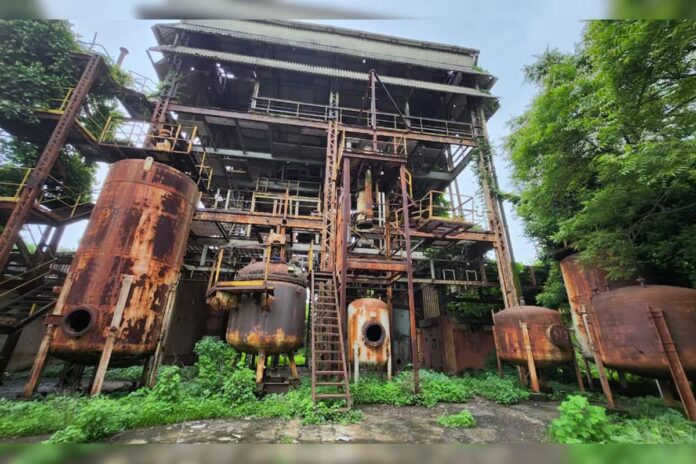Toxic waste from Bhopal’s Union Carbide factory, marking 40 years since the Bhopal gas tragedy, has finally been shifted for disposal. The hazardous waste, totalling 377 tons, was transported in 12 sealed container trucks from Bhopal to the Pithampur industrial area in Dhar district, Madhya Pradesh, covering a distance of 250 km.
Waste Transported Under High Security
The operation began on Wednesday night, with trucks leaving Bhopal at around 9 PM. A green corridor was created to ensure an uninterrupted journey, which took approximately seven hours. Swatantra Kumar Singh, Director of the Bhopal Gas Tragedy Relief and Rehabilitation Department, confirmed that nearly 100 workers were engaged in packing and loading the waste. Workers underwent health check-ups and were rotated every 30 minutes to ensure safety.
A Tragic Reminder Of The 1984 Gas Leak
The toxic waste is a grim reminder of the catastrophic gas leak on the night of December 2-3, 1984, when highly toxic methyl isocyanate gas escaped from the Union Carbide pesticide factory. The disaster claimed at least 5,479 lives and left thousands with chronic health issues, making it one of the worst industrial accidents in history.
Court-Ordered Action After Decades Of Delay
The Madhya Pradesh High Court recently criticized authorities for their prolonged inaction. On December 3, the court issued a four-week deadline to remove the waste, warning of contempt proceedings if the directive was ignored. The delay has been seen as a “state of inertia” despite previous Supreme Court instructions.
Waste Disposal Process At Pithampur
The waste will be incinerated at Pithampur’s disposal unit under strict supervision by experts from the Central and State Pollution Control Boards. The incineration process will use four-layer filters to prevent air pollution. After confirming that no toxic elements remain, the ash will be secured with a two-layer membrane and buried to ensure no contact with soil or water.
Concerns Over Environmental Impact
Some local activists raised concerns about potential pollution, citing a trial disposal in 2015 that allegedly contaminated soil and water in nearby areas. However, Singh dismissed these claims, stating the decision to incinerate the waste at Pithampur was made only after reviewing the 2015 trial results and addressing objections.
Protests Against Disposal In Pithampur
Residents of Pithampur, home to about 1.75 lakh people, have expressed strong opposition. A protest march was held on Sunday, highlighting fears of potential environmental and health risks despite assurances from officials.
This long-awaited step underscores the lasting legacy of the Bhopal gas tragedy and the ongoing struggle for justice, safety, and environmental accountability.

